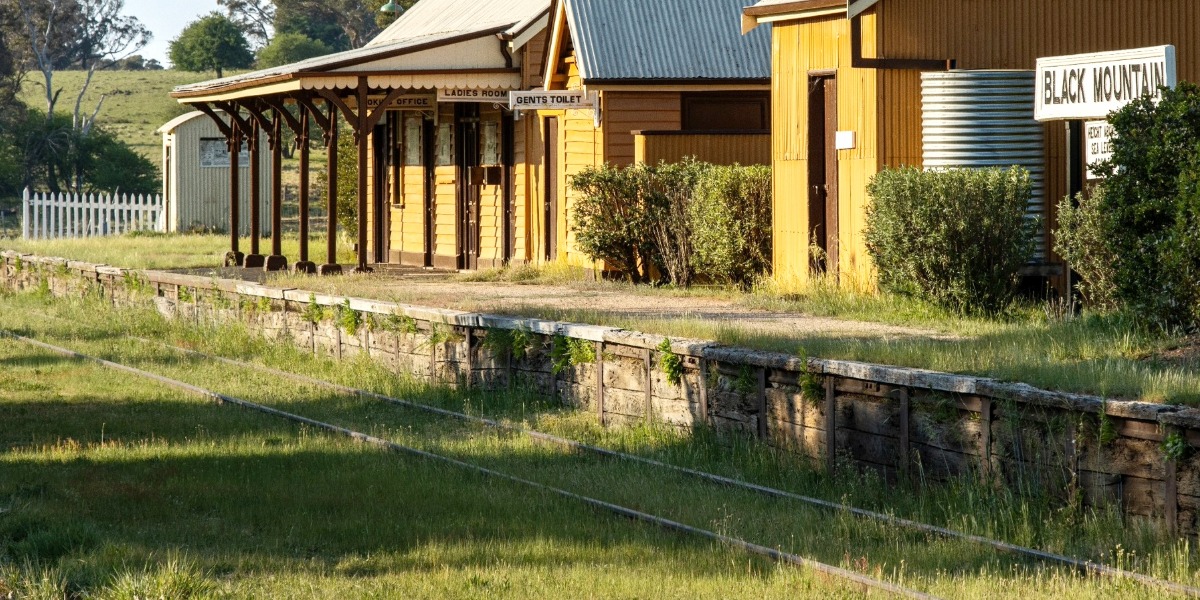Armidale Regional Council will this week vote on whether to spend more than a million dollars of ratepayer funds to keep the New England Rail Trail alive, despite repeated funding rejections and ongoing community division over the project.
At its ordinary meeting on Wednesday, Council will consider a staff recommendation to allocate $1,083,500 (excluding GST) to deliver the preliminary works and approvals stages of the New England Rail Trail (NERT) project, covering the section from Armidale to Ben Lomond. The funds would come directly from Council’s general budget rather than external grants.
According to the NERT business case and project plan, Stage 1, valued at $845,000, would cover preliminary works including surveys, environmental and heritage assessments, and site inspections. Stage 2, worth $140,000, would focus on regulatory approvals and the preparation of a business model consistent with the NSW Rail Trails Framework. A 10 per cent contingency brings the total to just over $1.08 million.
Council has already budgeted $497,800 in its 2025–26 Operational Plan, meaning it will need to find an additional $585,700 through external funding or reallocation of other funds.
The business case projects that a completed rail trail between Armidale and Ben Lomond could generate 9,000 day visits and 11,400 overnight stays annually, supporting an estimated 41 full-time equivalent jobs and adding $5.9 million in visitor spending to the local economy each year. It also claims the trail would enhance the New England region’s reputation as an adventure and cycling destination, drawing new visitors from across Australia and helping diversify the local tourism economy.
The New England Rail Trail has been in development since 2018, when consultant Mike Halliburton Associates prepared an initial trail plan. The 103 kilometre disused rail corridor between Armidale and Glen Innes was opened in 1888 but has been unused for more than 35 years, with the last trains operating north of Armidale in the mid-2000s.
Council initially secured $5.41 million through the Black Summer Bushfire Recovery Grant for the Ben Lomond to Black Mountain section, but the funding was later withdrawn. Two further applications — $1.8 million from the Growing Regions Fund and $21.1 million from the Precincts and Partnerships Program — were also unsuccessful.
The NSW Government confirmed in late 2024 that no approval had been granted for the corridor to be used as a rail trail, and that the line could still be considered for reactivation of rail services.
The proposal to proceed with more than a million dollars of Council funding has drawn strong criticism from community group Trains North, who say the decision was “a million-dollar raid on ratepayers’ funds for a three-times failed rail trail project,” arguing the money could be better spent on urgent infrastructure such as water security, roads, or airport upgrades.
“It’s not as if ARC is swimming in money,” siad former Armidale Regional Councillor and Vice President of Trains North, Margaret O’Connor.
“Rural roads in the former Guyra Shire which was forced into Armidale Council in 2016 are still in a woeful state, Armidale has lost its much needed hydrotherapy pool, and the Council has abandoned attempts to replace it.”
“The region’s existing bike paths are not maintained which demonstrates Council has no commitment to actual active transport,” she said.
“So it’s extraordinary that this Council would now shamelessly splurge over a million critical dollars on a project that has been refused grant funding not once but three times.”
Trains North said it was “scandalous” for Council to push ahead with funding before the NSW Government finalises its Strategic Regional Integrated Transport Plan, which is still in development.
“That plan could identify reactivation of the Armidale line as a key regional priority. To spend this money now while the state government is still considering future transport needs would be irresponsible.”
Trains North also warned that the business plan includes selling the steel railway tracks to offset project costs, effectively preventing any chance of restoring passenger or freight rail to the region. “Removing the rails destroys the possibility of reconnecting northern New England to the rest of the country’s rail network,” she said.
The group has also called for a roundtable bringing together both rail trail advocates and supporters of railway restoration to seek a compromise solution and jointly lobby for better regional transport investment.
Council’s staff report argues that proceeding with the preliminary stages is necessary to satisfy the NSW Rail Trails Framework, which requires a viable business model, evidence of community consultation, and environmental and heritage studies before a project can be considered for state approval. Council has already secured an access licence with UGL Regional Linx, which manages the rail corridor on behalf of Transport for NSW, to allow inspections and environmental work to proceed.
If approved, the first two stages are expected to run through to July 2027, after which Council would need further funding for construction.
The New England Rail Trail has become one of the region’s most contentious issues, dividing councillors and communities across Armidale and Guyra. In April last year, Council appeared to abandon the original full-length proposal, with Mayor Sam Coupland declaring the project “dead”, before a month later, a recision motion revived a scaled-back version of the trail, prompting angry exchanges in the chamber and accusations of bullying among councillors.
Further controversy erupted last November when New England Times revealed that Council leadership had failed to disclose the loss of the Black Summer grant ahead of the 2024 Local Government elections.
Got something you want to say about this story? Have your say on our opinion and comment hub, New England Times Engage

